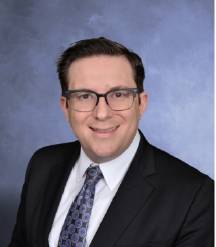
Rabbi Grossman, Head of School
As I look at our students during the final days of school before the summer, I am reminded of the Israelites standing at the border of the Promised Land. Behind them are the trials and toils that marked their trek through the desert, the hard work that characterized their long journey. The Torah teaches that God repeatedly tested our ancestors, “l’va’avur nasot etchem ba haElohim—God has come to test you (Exodus 20:17),” and, I am certain that, at the end of forty years, the Israelites were relieved that the exam period was over.
These past months have been a time of great trials for our students, families and community. Like their ancestors in the wilderness, our children have had to travel an unfamiliar path fraught with unexpected challenges and unfamiliar obstacles. As they went forth, the Children of Israel found themselves without their familiar surroundings; they needed to inure themselves to a novel routine, new regulations, and foreign visitors. Similarly, our students had to get used to a new daily schedule, new rules and directions, and the occasional uninvited Zoom guest.
In the Hebrew Bible, the 40-year sojourn in the Sinai wilderness is often regarded as a time of struggle and frustration. Reflecting on the past months, I image some parents will empathize with the Almighty’s words as He looked back upon the desert era: arba’im shanah akut–for forty years I struggled (Psalm 95:10)! At the same time, the wilderness wandering was a period of unprecedented accomplishments, unparalleled events, and miracles. It was during the desert era that food fell from the sky, extraordinary battles were won, and God revealed the Torah on Mount Sinai.
While we were not privileged to experience such supernal occurrences during our COVID-19 isolation, we were blessed with many great moments. Countless parents related that their children were thriving with the Akiva distance learning, and some reported that their students were achieving even greater success online than they had in our physical classrooms. Our teachers have been super—perhaps even supernatural. They have succeeded in engaging and educating our students with unparalleled passion, commitment, and creativity. We have also had events of communal crescendo—commemorations of Yom Hazikaron and Yom Ha’atzmaut, school-wide tefillah, family game nights, and adult learning—all through the modern miracle of Zoom. And one may well consider our overnight transition to online learning as something in the realm of the miraculous.

Banner of the Biblical Tribe of Judah
In our Torah portion this week, Parashat Shelach, we find the Israelites on the border of the Land of Israel. Imagining the journey ahead, the nation is in a state of anxiety; there are many known fears, as well as the fear of the unknown. Even Moses and Aaron are overwhelmed by the distressed cries of the Israelites. Over this cacophony of consternation there arises the voice of Caleb ben Jephunneh, the leader of the Tribe of Judah: “Aloh na’aleh…ki yachol nuchal…–Let us boldly go forward, for we are surely able!”
Since the beginning of the COVID-19 crisis, The Akiva School adopted the spirit of Caleb ben Jephunneh. We have seen it as our obligation to lead with confidence and optimism, knowing that we have the energy and ability to overcome the challenges that life presents. Like Caleb, we believe that the future is bright. Caleb’s tribe, the Tribe of Judah, would later become the leading tribe of the Jewish people, and it is from Judah that David and the kings of Israel would be born. Judah, the eponymous ancestor of the tribe, was likened to a lion for his bravery (Genesis 49:9), a trait he passed down to his descendants. The word Jew itself comes from the name Judah, as Jews have adopted the ethos of Judah, bravely looking towards tomorrow. Because Judah represents the destiny of hope, the messiah will come from his tribe.

Contemporary flag of Jerusalem, the ancient capital of the Kingdom of Judah. Note the featured lion.
I conclude my blog this year with final words that Caleb the Judahite uttered to the Israelites, words that continue to inform and inspire us more than three millennia after they were spoken: “Hashem itanu, al tira’um—God is with us, never fear!”
I look forward to seeing everyone again in the near, bright future. Have a wonderful summer!
Rabbi Grossman





